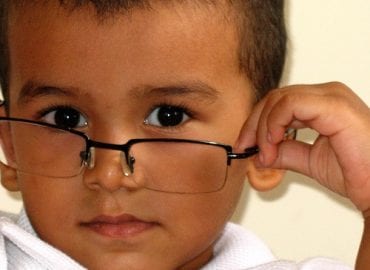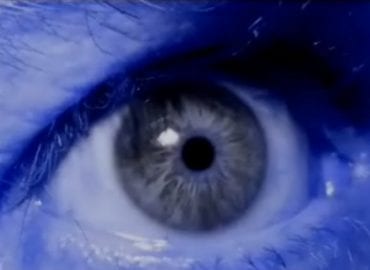Around 3 years ago a gentleman with unaided vision (his long-distance sight was perfect) said all of a sudden his eyes were constantly squinting, with the eyelids drooping for no discernable reason. Before coming to see us at Visual Q Eyecare he told us he’d already visited 4 ophthalmologists (eye specialist surgeons), 1 neurologist and 3 optometrists. He’d even had blood tests, but no one could discover the cause of his malady. Finally, he was referred to us by his GP, who just happened to be a Visual Q customer herself.
The patient told us that he’d started wearing +2 ready-made glasses 2 years previous in an attempt to solve the problem, but they made him feel nauseous whenever he wore them. After arriving at Visual Q to see me, the man seemed resigned to his supposed fate of squinting for the rest of his life, ‘I’ll try another eye doctor,’ he said, ‘but I don’t think you’ll be able to find out what is causing the problem.’
After over an hour of eye testing, including a number of eye muscle tests, I finally discovered the problem. His eyes had a ‘turn in’ tendency. What does this mean? He has the ability to look straight ahead, but to do so the muscles in his eyes had the inclination to turn inwards. Therefore, the eye muscles became uncomfortable because they constantly had to work hard to straighten out the eyes. The result was that the eyes squinted, and let me tell you, closing your eyes into small slits is not a good look for a high-flying businessperson!
The gentleman told us he consistently had to field questions from his colleagues about why he was squinting all the time. ‘I can’t keep my eyes open!’ he’d say. His frustration was exacerbated by the fact that nothing anyone did for him would fix the problem.

We prescribed multifocal glasses with prisms, as he also needed help with his reading. The prism compensated for the deficiency he had in his eye muscles. Essentially, we let the eye turn inwards so it could be comfortable, but the prism directed the eyes’ vision straight ahead.
The man can now see with his eyes wide open, both to the world around him, and to his unique eye problem. The reason why no one else could detect the exact issue was he never said the magic words, ‘double vision’ as a symptom. We performed binocular eye muscle tests that are usually reserved for children, and picked up on the problem because the majority of people don’t bother with these tests when caring for an adult. That is of course, unless a patient has complained of double vision as a symptom, which this person never did.
The keys here were experience and persistence. If a patient complains of a problem, there is undoubtedly something wrong. So, we do whatever it takes to find out what the issue is. Ever since I did my PhD I have loved research, and when it comes to patient care, there isn’t a better place to put this love into action.
* Thanks to Matt Majewski at ‘darkumber’ for the image.



